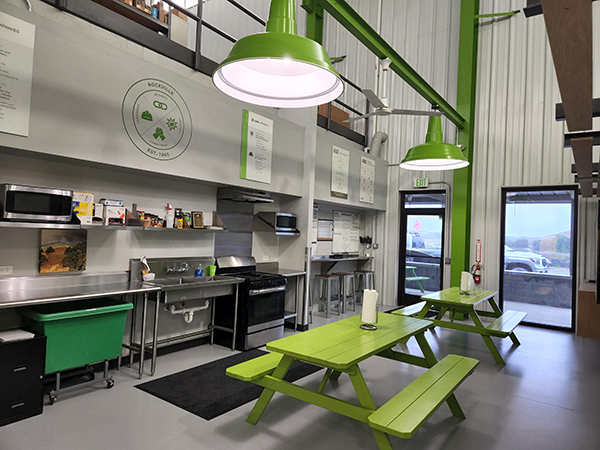Luck Stone setting aesthetic standard at Rockville Plant

Yanik
Summers at Pit & Quarry are always the ideal time to get out and visit readers.
While our first and fourth quarters are typically dominated by travel to trade shows and other industry events, the middle chunk of our calendar year is usually wide open with a few annual fixtures sprinkled in.
When setting up summer visits to aggregate operations, we often look for unique stories ahead of time to ensure engaging content emerges on the back end. We tend to seek out story leads tied to equipment and technology – perhaps a new plant installation, an upgraded crusher or screen, or an enhanced mobile fleet.
But good story angles aren’t always unearthed before visits are set up. Sometimes, the host producer says something during a ridealong that sticks out to an editor, and that nugget is molded into a captivating feature. At yet other times, an editor will see something surprising during a site visit that screams “story,” and that find will be fleshed out into a publishable piece for the magazine.
Memorable visit

A kitchen, a locker room and training facility are containing within the pristine shop at Luck Stone’s Rockville Plant. Photo: P&Q Staff
Not too long ago, I planned a visit to Luck Stone’s Rockville Plant in Rockville, Virginia, as one leg of a bigger road trip.
In initial conversations with the marketing team at Luck Stone, Rockville’s workshop came up as a possible story angle. P&Q doesn’t historically publish much on shops. I’ve seen plenty of them, and they’re not always the prettiest sights with equipment, tools and who knows what scattered all over the place.
Based on past experience, I was somewhat skeptical about a workshop becoming a major storyline from a visit. Still, I kept an open mind and thought maybe something special resided in Rockville.
What I ultimately found at Luck Stone’s Rockville Plant astounded me. It was the most pristine shop – by far – that I’ve ever seen within our industry. Tools were organized neatly, and the spots and stains you see splattered in shops everywhere were nowhere to be found.
In fact, the shop’s surfaces looked so clean that you could practically eat off of them. Fortunately, an attached kitchen – also immaculately clean – provided a space to do just that.
“I feel like it sets the standard for the entire industry,” says Mitchell Edwards, foreman at the Rockville Plant, when referencing the shop. “We have vendors walk in here – some [with] 20 or 25-plus years’ experience – and they’re simply blown away about how it looks and how we upkeep it. Really, that starts from the top leadership.”
Luck Stone’s Bobby Kluczyk says the approach with the shop translates to other areas of the operation.
“It sets the stage [because] it’s the first thing the guys see down to the bottom bench of the pit,” says Kluczyk, plant manager of the Rockville Plant. “You send a guy to work on berms and he has that aesthetics feel.
“It’s the same with the plant,” he adds. “Guys take a lot of pride in washing out, fixing [things] properly and painting. This sets the stage and standard for the whole site.”
Featured photo: P&Q Staff









